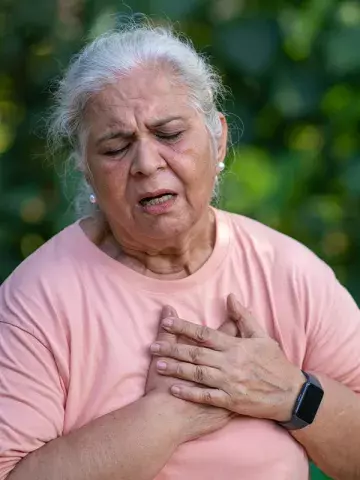Sex differences in calling triple zero for suspected acute coronary syndrome event
By Melanie Hinze
Various subgroups of men and women are less likely to call emergency medical services (EMS) for an acute coronary syndrome (ACS) event, according to research published in Emergency Medicine Journal.
In a retrospective cross-sectional analysis of more than 34,000 individuals, researchers examined sex differences among Australians in their intention to call and use EMS during an ACS event. Data were obtained from several sources including national survey data between 2018 and 2020 and the Victorian Emergency Minimum Dataset (2016 to 2021).
The researchers found that for men factors associated with lower intention to call EMS included their level of education, poor symptom knowledge and being of Aboriginal or Torres Strait Islander origin. Women were less likely to call EMS if they lived in regional or remote areas or had a preferred language other than English. Being born overseas was associated with lower EMS use in both sexes.
The researchers found that although women reported being more hesitant than men to call EMS (69.1 vs 76.7%; p<0.001), fewer men presented to the emergency department via EMS than women (62.5% vs 67.7%; p<0.001).
‘This study highlights an opportunity to target education to specific sexes and subgroups within each sex to reduce delays in seeking medical treatment for ACS,’ the researchers wrote.
Commenting on the findings, Professor Garry Jennings, Heart Foundation Chief Medical Advisor, said the message was that those people who were not responding appropriately to their symptoms tended to be in low socioeconomic groups, in remote locations, or for whom English was not their first language.
‘I think we learned from COVID that our mainstream messaging does not reach all sections of the community, and we have got to be more creative,’ he said.
‘I think this involves using community groups and face-to-face groups, and through other voices who people do listen to in the community, and not just handing out brochures or the odd TV advertisement.’
Professor Jennings said that GPs could support these efforts by never missing an opportunity with someone who has cardiovascular disease, or is at high risk of cardiovascular disease, to emphasise the importance of triple zero as the initial response.
‘In addition, if there is an opportunity it’s important to make sure that this is understood by family members and others who witness people experiencing chest pain or other symptoms,’ Professor Jennings added.


